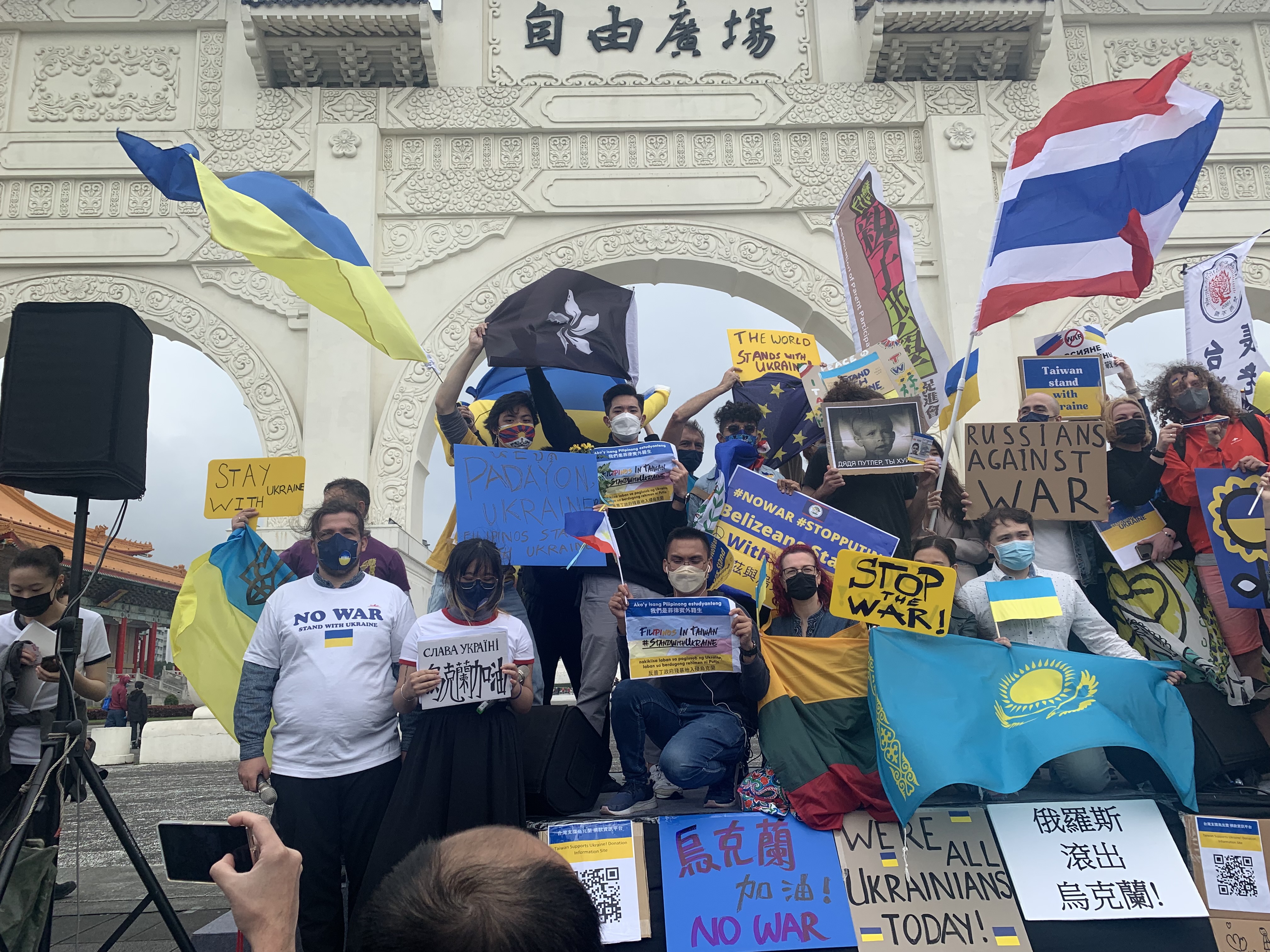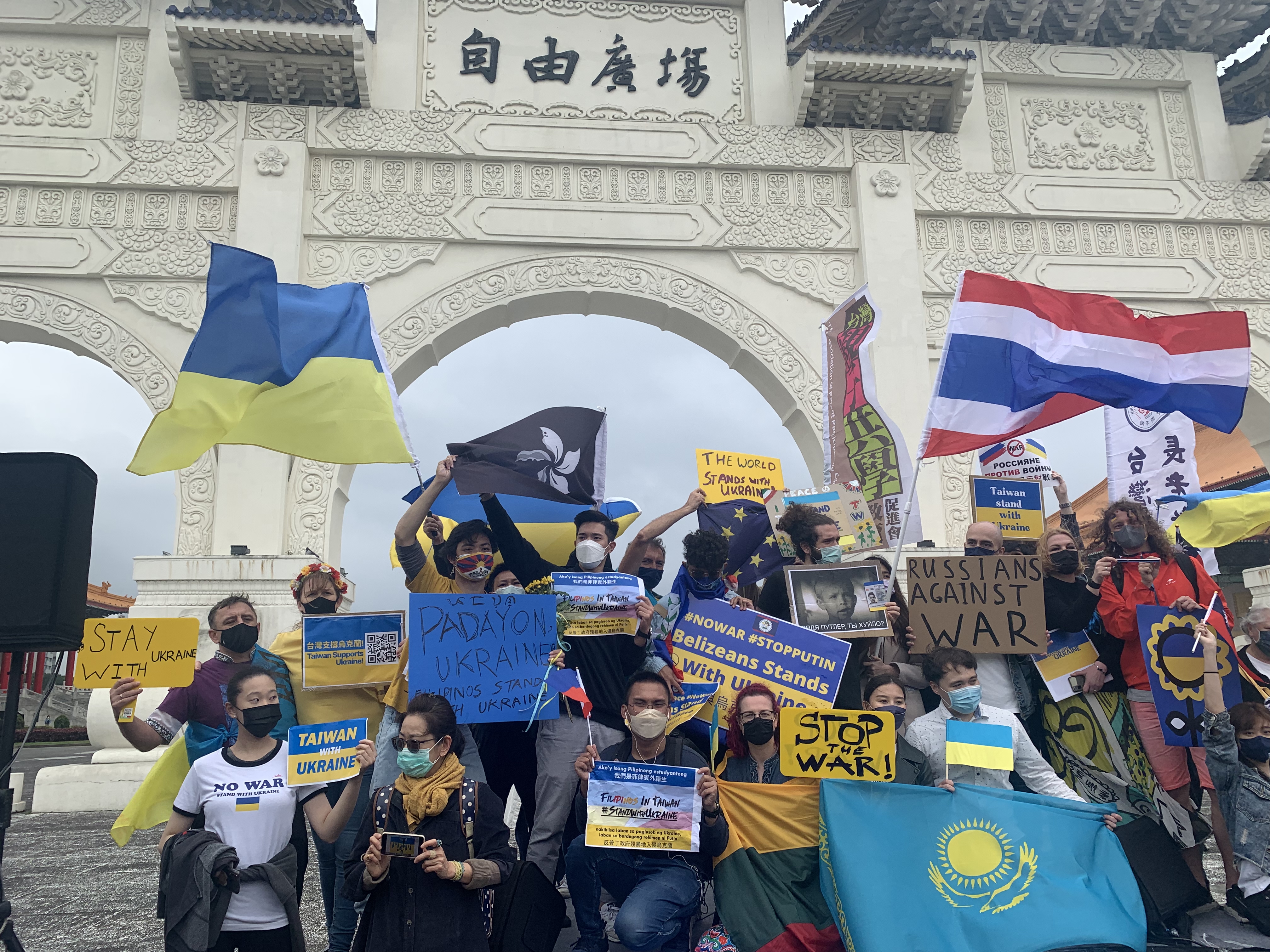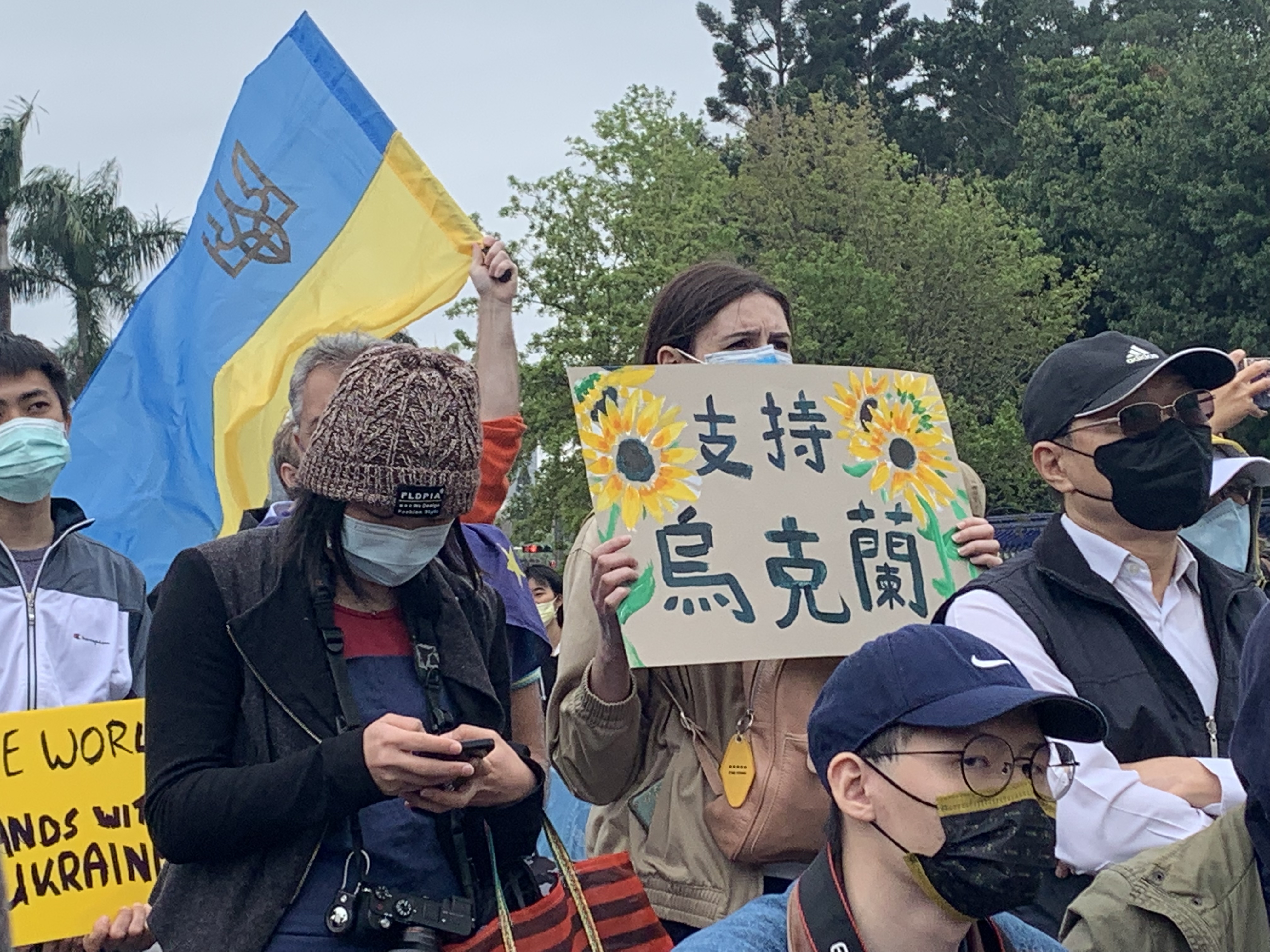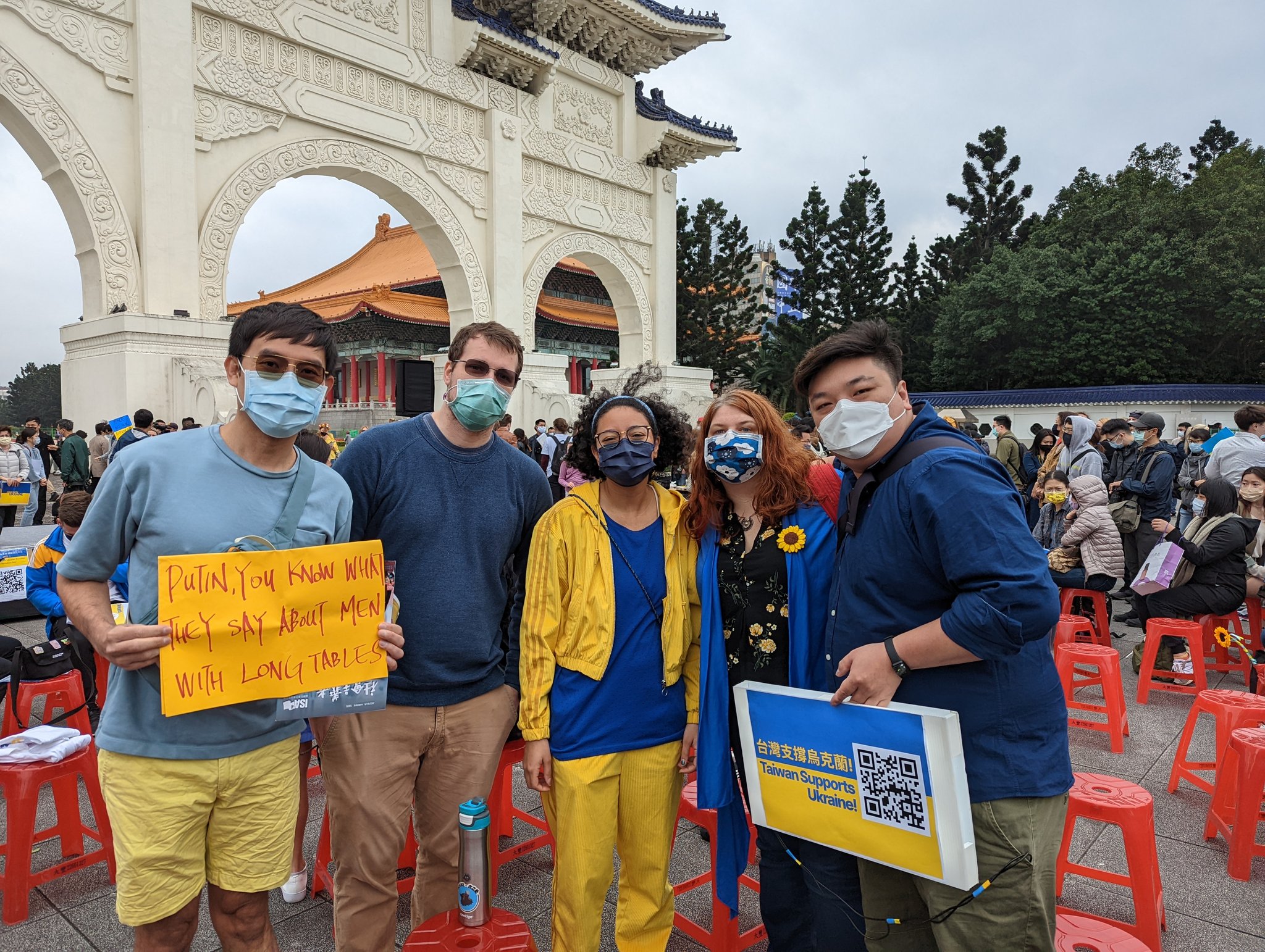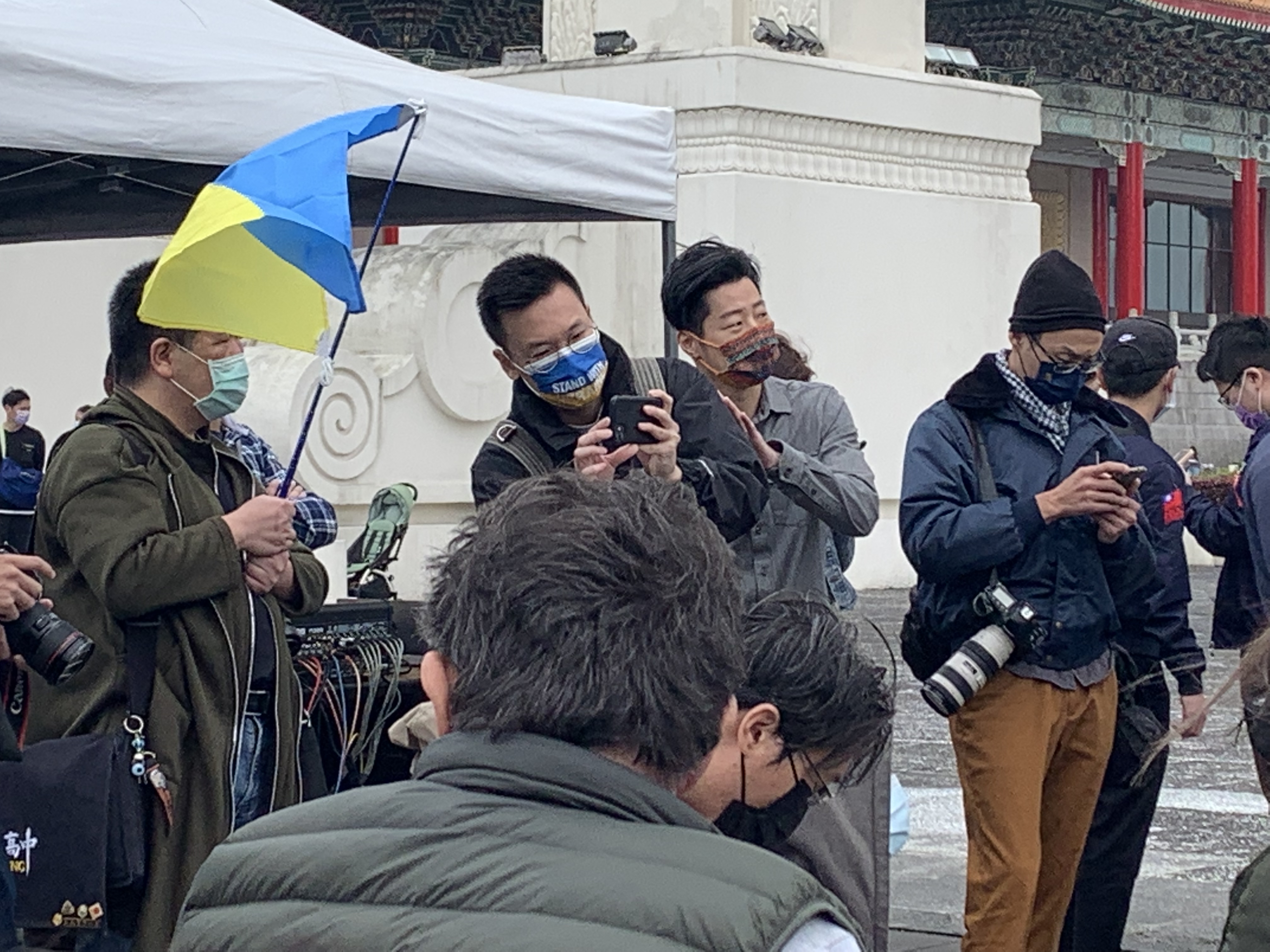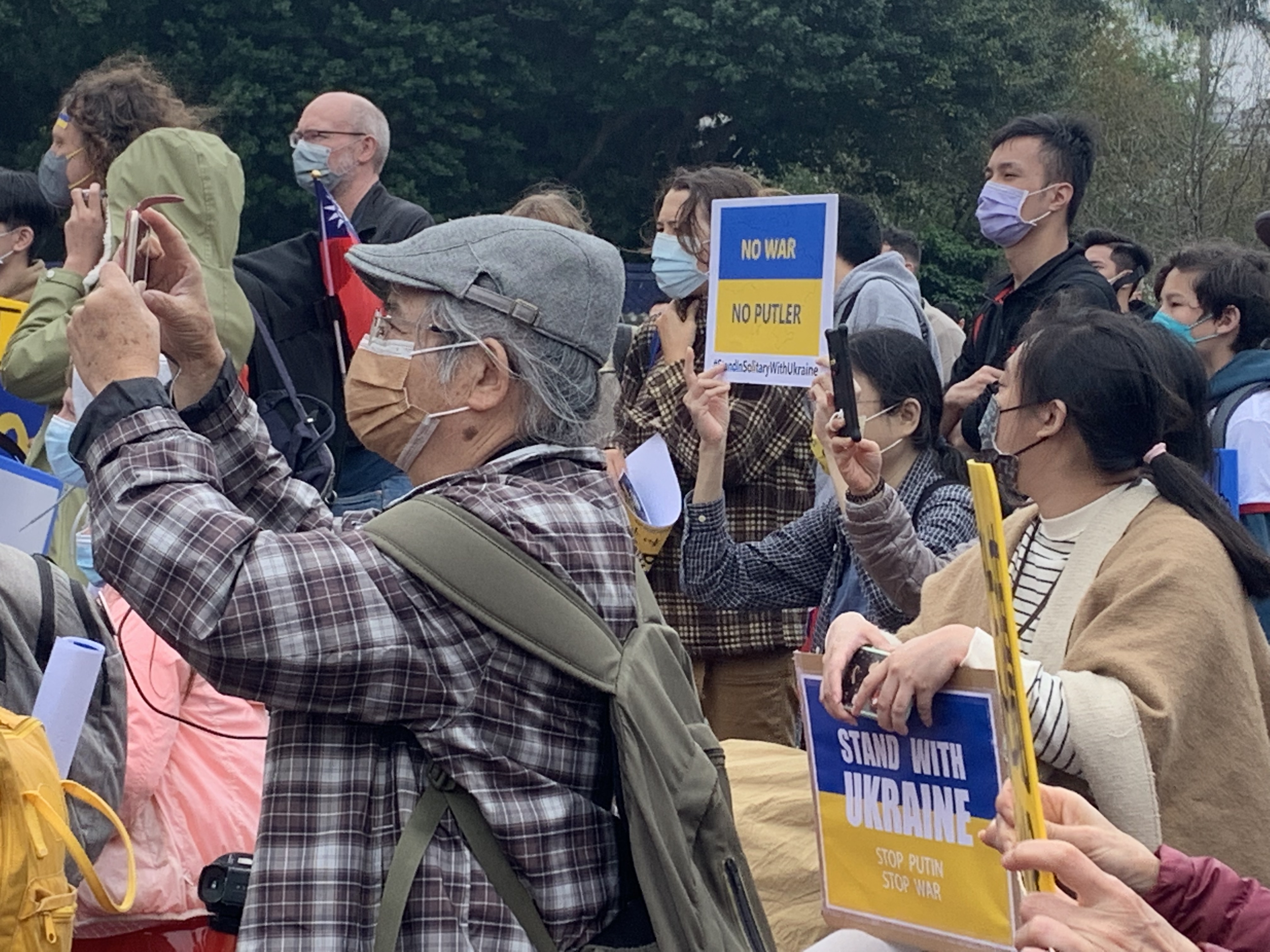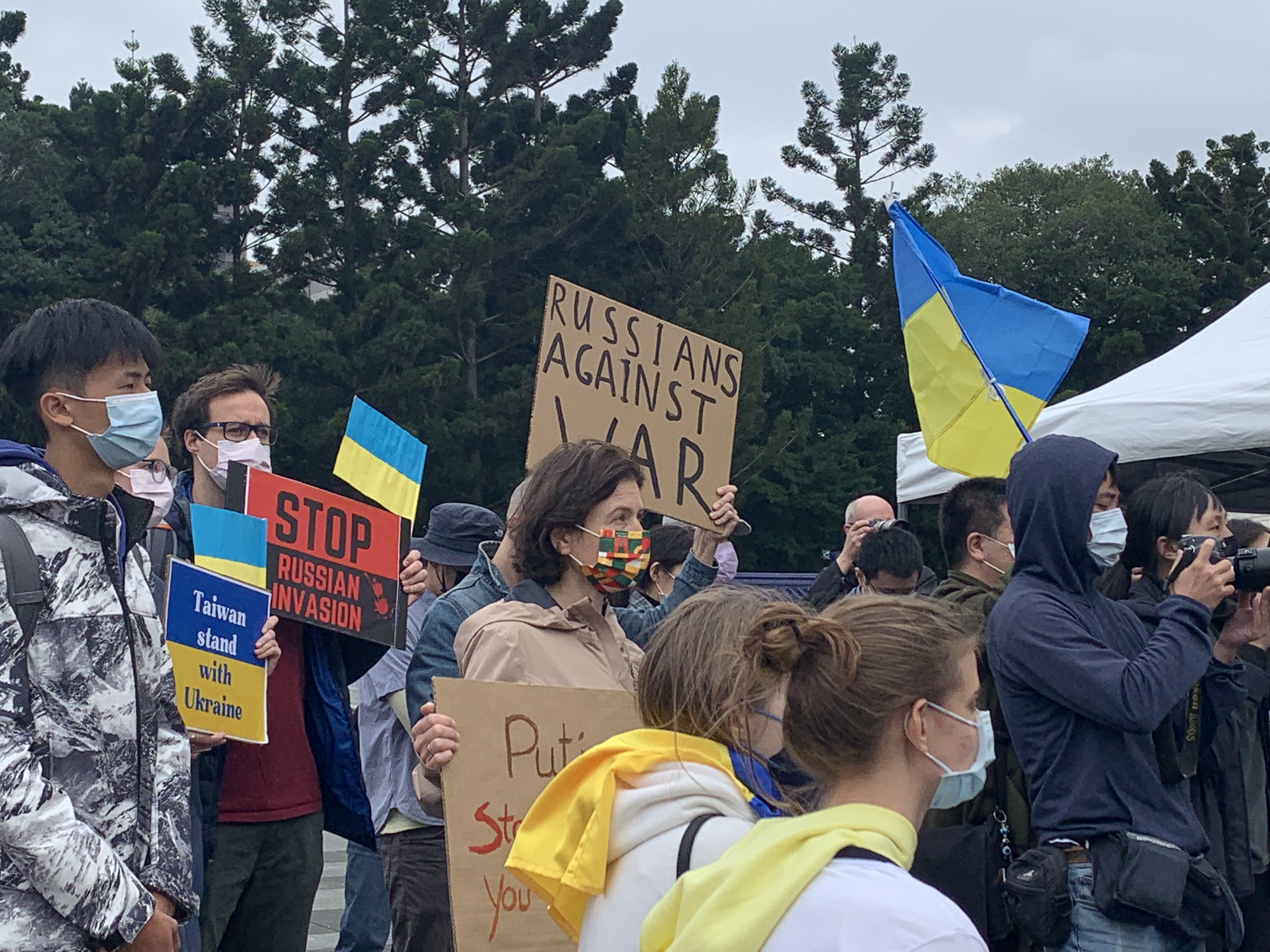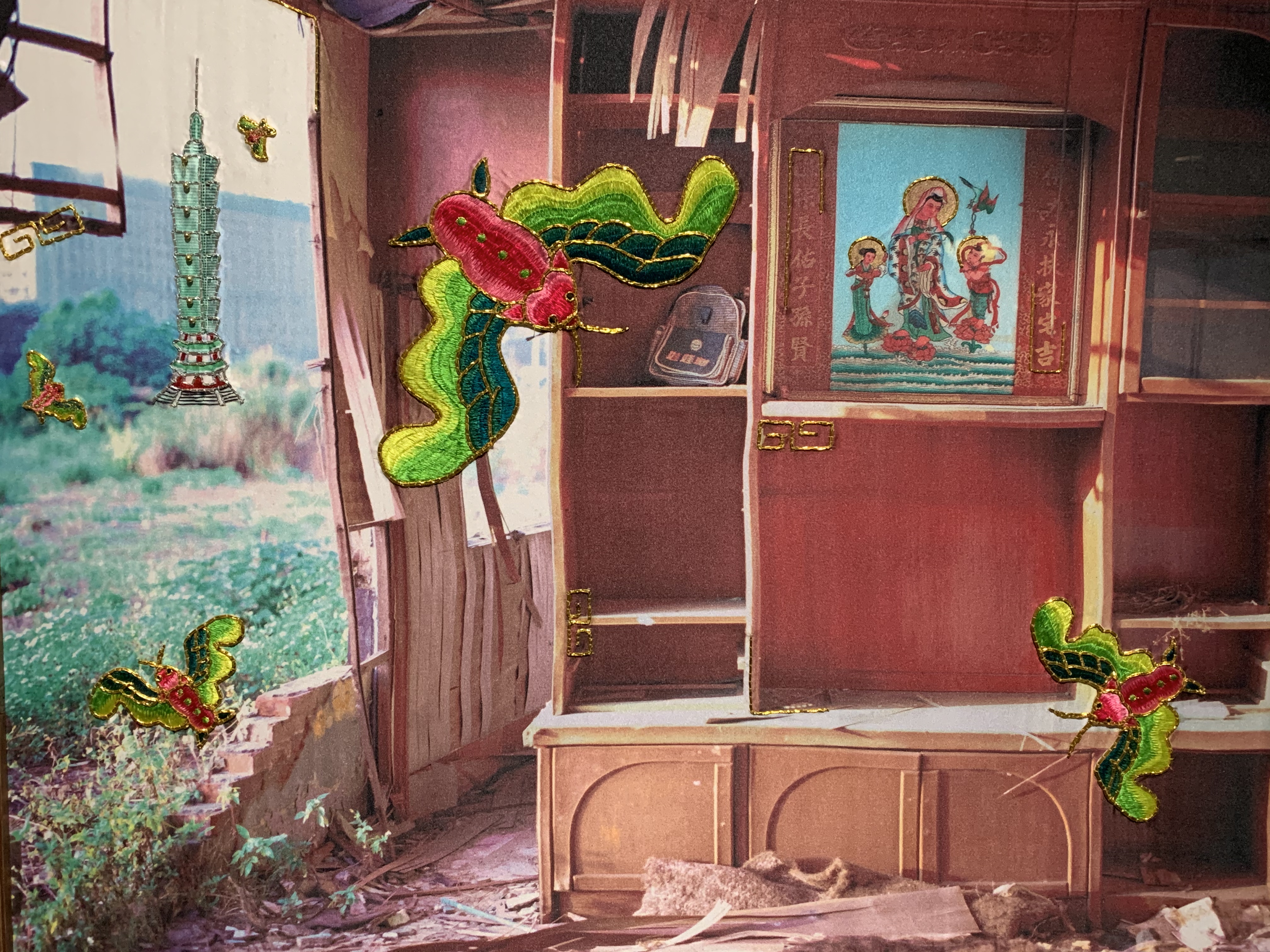
Now that I have had time to calm down, I want to talk about what is, in my estimation, the worst paper involving Taiwan written in the past decade. This may be in parts less organized than I'd like, but the alternative is my original reaction: indiscriminate shrieking of expletives. So you get what you get.
Anyway.
An article was recently published in the Australian Journal of International Affairs by Nick Bisley, Robyn Eckersley, Shahar Hameiri, Jessica Kirk, George Lawson and Benjamin Zala on "progressive realism" in Australian politics.
The piece defines "progressive realism" (a real term in International Affairs, not just progressivism in the common sense) and applies it to pandemics, climate change, infrastructure in the Pacific, and Taiwan. For the purposes of this post, only the section on Taiwan matters.
What is it, then? According to the authors, it:
"combines a ‘realistic’ diagnosis of the key dynamics that underpin contemporary world politics with a ‘progressive’ focus on the redistribution of existing power configurations. Taken together, these two building blocks provide the foundations for a left-of-centre foreign policy agenda."
This definition is based on the work of Joseph Nye and Robert Wright and became popular about 15 years ago. Notably, this was just about the time that the Bush II era of American hard power was declining in popularity and an 'early 2000s progressive' like Obama looked set to displace that whole way of thinking. This was also back when we thought a Democratic foreign policy after the 2008 elections would be markedly different from Bush II's, From my vantage point in 2022, I'm no longer so sure that was the case.
The short of what Nye argued for was acknowledging the world and the powers with in it as it is, not as we'd like it to be, and working within those constraints to do what we can to disseminate liberal values (think liberty, democracy, human rights), through soft power whenever possibly and hard (military) power only when necessary. This might mean accepting cultural differences where those values don't necessarily read the same way, or it might mean accepting that we don't have the power to fix everything we'd like. With events like the rise of China as an economic power, this might mean incorporating China as a "responsible stakeholder" (that's a quote from Nye) in the global order.
Basically, integrate hard and soft power, encourage the evolution of a liberal "life, liberty and the pursuit of happiness" international mindset where we can, but accept that a superpower like the US doesn't get to set the global agenda.
What's wrong with that? Well, there are three key flaws with the paper itself. First, it doesn't examine regional stability and security from all viewpoints -- in other words, by denying Taiwan agency or even the consideration that it might react differently than they assume, it displays frightening racism.
Second, it does not do what it says it does vis-a-vis "progressive realism". At the end of the day, what they're offering up is just plain old realism. Even if you accept that "progressive" has a specific definition here, it still doesn't meet its own goals.
Finally, it fundamentally misunderstands China. It doesn't just get China fatally wrong, but it does so in a way so bone-chilling that I am quite certain the authors do not realize the subtext of what they're actually saying. If you treat China in 2022 as though Nye's conception of China in 2006 still holds, you are in for a very rude awakening.
Let's start with the lack of agency accorded Taiwan. The 'realist' aspect of a "progressive realist" policy requires the analyst to craft solutions to policy issues that take into account power relations as they are, not as one would like them to be. In that sense, if one calculates that Taiwan doesn't have a lot of power compared with China, and therefore is either in too hopeless a position to be aided in its struggle for autonomy, or the cost of doing so would be prohibitively high or likely unsuccessful, then the logical next step is to abandon Taiwan.
Under that set of assumptions, what Taiwan wants doesn't matter, and the values it stands for don't either: the power dynamic and constraints are what they are, period.
However, a progressive realist would say that Taiwan deserves a better outcome than outright annexation if possible and will start to throw out suggestions like a negotiated peace, or concessions from both sides. Deter China from engaging in the worst kind of subjugation, even if it means Taiwan ultimately loses quite a bit.
This is ultimately what the paper attempts to say:
A successful invasion would signal the end of US primacy in Asia and it would likely be dismal for 23 million Taiwanese. But it is not clear that maintaining the island’s de facto independence would ensure a favourable balance of power.
There are three major policy options for responding to the threat of the use of force over Taiwan: negotiation, deterrence and conflict. Negotiation and deterrence are compatible with a progressive realist approach; conflict is not. The first option is to negotiate some kind of bargain in which the PRC achieves its ambitions while making concessions of its own, such as stepping back from its claims in the East and South China Seas and accepting a regional balance of power that retains a significant US presence (Glaser 2015). There is a strong long-term rationale for making such a concession in that it could significantly reduce the risks of war and create a potentially stable foundation for regional order.
Even working within those constraints, however, there's a big problem with the argument: it assumes Taiwan would react the way the analysts or policy officials in other countries would prefer them to react. That is, they assume Taiwan would negotiate, would allow itself a "dismal" future for no particular benefit to itself. Conflict would be thus avoided.
What happens if Taiwanese, understandably, react much the same way to a foreign invasion as Ukrainians are? Where's your "progressive balance of power" then, with more than half of global trade completely bottled up and unable to move through the W.Pacific??
— Fisk (@Fiskorama) March 23, 2022
You might think you have a seamless reintegration of Taiwan into China, to give the latter "space" (and boy, the historical echoes of that!), but the whole strategy requires Asian people, i.e. Taiwanese & Japanese, to do what white politicians want them to do. What if they don't?
— Fisk (@Fiskorama) March 23, 2022
Exactly. What happens when Taiwanese don't bend over and do what mostly white politicians in majority-white countries want them to do?
Even if you argue that, absent any carrots, negotiating to avoid a stick is still a benefit, it still doesn't hold. Taiwan will get hit with that stick no matter what it does, so what benefit is it to Taiwan to subjugate itself? China has nothing -- truly nothing -- to offer in return.
Considering this, the calculation that ending the Taiwan conflict now by allowing Taiwan to be subjugated would reduce conflict in the Pacific is fundamentally flawed, because it assumes that China can be handed Taiwan with no war breaking out -- that Taiwan would react just as they wish.
If anything, it sounds like a recipe for a conflict that would do more harm in the Pacific than deterring China.
You can tell that the writers did not even consider the Taiwanese position nor how Taiwan would react -- compliance and complicity in their own demise was simply assumed -- by looking at the citations.
No Taiwanese academic or journalistic work was cited. Only two references consider Taiwan in the title, and both look at it from non-Taiwanese perspectives. There are three Asian voices represented: one is Penny Wong, an Australian senator of Malaysian Chinese heritage, and another is Zhang Denghua, who specializes in Chinese (not Taiwanese) foreign policy.
The third is Xi Jinping.
Of course they assumed Taiwanese compliance in this grand new scheme they've proposed, because they never consulted any Taiwanese sources that might indicate otherwise.
As a result, the paper utterly fails to actually offer a progressive realist solution to the Taiwan issue. The authors take all the cold calculus of realism, with none of the higher-minded goals of actually using an integration of soft and hard power to advance a liberal world order (whether one thins the "liberal world order" is hopelessly corrupted is another topic; for now let's assume that however imperfect, it's preferable an authoritarian world order.)
If Nye and Wright wanted to acknowledge the world as it is while doing whatever is possible, within identified constraints, to evolve the world toward liberal ideals, these writers simply want to hand more power and "space" to China. They do admit it would create a region where authoritarianism holds more sway than liberal democracy:
The redistribution of power and status at the international level will not in itself produce progressive outcomes. To the contrary, in some cases, authoritarian states will wield more influence than they held before. But there is nothing progressive about refusing to recognise a changed material reality, most obviously the rise (or return) of authoritarian great powers.
In other words, this conclusion is just realism. The "progressive" aspect is merely window dressing.
They try to argue that handing Taiwan to China would not increase its hard power or military might -- I think this is quite wrong, because it absolutely would give them a foothold from which to threaten all the other neighboring nations it has been angering for quite some time. Their solution to this is to claim that, handed Taiwan on a platter, China would agree to stop threatening the South China Sea (and, by implication, the Senkakus and Ryukyus, both of which they've got their sights on to varying degrees.)
China would probably agree to this. These writers would probably pat themselves on the back for a good proposal, well-executed.
Then China would turn around and do whatever the hell it wanted around Japan and the South China Sea anyway, because that's what it does. We already know that: I could point to endless agreements that China has chucked in the trash whenever it feels like it, but all one really needs to do is look at Hong Kong.
Each of those conflicts would create yet another risk of escalation. China creates these problems and will continue doing so; giving it more space to create more problems is a great way to increase, not decrease, the threat of a larger war breaking out.
All of those ideals that are meant to differentiate progressive realism from realism are treated as expendable in this case. But if they're expendable -- sorry, calculated to be unattainable -- then that's not progressive realism, it's just realism.
It may be obvious by now that I don't have a lot of faith in progressive realism as a concept. I say this as an Earnest Liberal: it reads as a way for fellow good-vibes milquetoast Earnest Liberals to just do coldhearted realism, and have ethics only when it's convenient and easy. It gives them a way to say they care about human rights, democracy and the liberal world order while selling out exactly those things. It's a license to engage in hypocrisy.
Personally, I feel that if you say you stand for democracy then you should actually stand for democracy. Not democracy when it's convenient or democracy for me, but screw you. If you're willing to sell out a democracy, I don't care how you spin it, you are not standing for democracy.
You're also creating a world in which authoritarian great powers can gobble up whatever they want, including fellow democracies. In that world, no one is truly safe.
That doesn't sound like a secure world order to me.
Let's take my feelings out of it, though, and consider whether the paper offers a progressive realist solution to the conflict China has created over Taiwan within its own framework. To successfully do so, the paper would have to make the case that selling Taiwan out to China would be a net benefit: peace, stability and more access to everything liberalism promises in the region if not the world.
It doesn't. Giving China 'more space' is a great way to help China use its might to influence other Asia-Pacific nations to move away from democracy and toward authoritarianism. Many if not most are already sliding in that direction. That's not improving the world where we can as per Nye, it's just realism.
The authors reject this:
Were the island to fall under PRC control, it would not significantly advance PRC military capacities; the leaps it is making in naval, missile and air capabilities have already shifted the regional balance (Porter and Mazarr 2021). Taiwan’s circumstances are not the particular tipping point that would lead to a general shift in the regional balance of power towards Chinese hegemony.
I find this unconvincing, but even if we take it seriously, "the bully is already very powerful so we should simply give it whatever it wants" sounds like a lot of things -- realism, defeatism, illiberalism. It doesn't sound like a "left-of-center" anything.
They call it "sober" and "clear-eyed". I call it cowardly, selfish and hypocritical.
In terms of stability, it offers up a very real conflict -- the certainty of a war in Taiwan and horrific subjugation of Taiwanese -- as a way to avoid an inferred or theoretical 'larger conflict' with China that is assumed to exist but has not yet actually taken shape. It's quite literally positing that the certainty of a war in Taiwan is preferable to the possibility of a war between China and Australia later.
The paper also maintains a focus on Australian interests, not necessarily Asia-Pacific ones. That makes sense given the scope of the work, but if you're going to make the case that selling out one nation will be of net benefit to the world, not just Australia, you've actually got to make that case.
A progressive realist policy for Australia, therefore, combines negotiation and deterrence based on a clear-eyed assessment of Taiwan’s importance for Australian interests in a stable regional balance of power.
They don't. Taiwan and Australia have comparable populations (23.6 and 25.6 million, respectively).
If you maintain a narrow focus on what benefits Australia, and then argue that allowing Taiwan to be annexed and subjugated is in Australia's interests, then there is no net benefit. You are merely advocating for the certain oppression, torture and slaughter (all things China would absolutely do in the war that would break out because Taiwan is highly unlikely to surrender) of tens of millions of Taiwanese in exchange for the theoretical benefit to an equivalent number of (majority white) Australians.
I don't know about you, but to me that sounds like plain old white-people-come-first racism.
Absolutely - "the imagined nuclear threat to white Australians outweighs the real threat of genocide to Taiwanese people" - even in hypothetical terms we are never truly human, just expendable chess pieces that exist to service white supremacy. 🤡
— Dr. C (@iaukuigina) March 23, 2022
It's not even clear what the benefits would be to Australians: vague conceptual things like "greater security", perhaps? Certainly, supporting Taiwan doesn't entail a trade-off in which Australians necessarily endure the same level of subjugation and slaughter. So a clear and predictable destruction of Taiwan for a possibly more secure future for Australia? That's not remotely equivalent let alone a greater benefit.
In fact, one could argue that giving China more 'space' would be detrimental to Australia. China already threatens both Chinese in Australia and Australians of Chinese heritage. To some extent, they cause trouble for Australians not of Chinese heritage, too. They lease ports, have stakes in valuable economic interests, are willing to deploy economic punishments whenever they don't get what they want, and have extensive influence operations in Australian politics, education and media (Chinese-language media in Australia is still Australian media). None of this is benign. Allowing more of it would weaken, not strengthen, Australia's position.
In other words -- seriously, you want to sell out Taiwan so you can insert yourself more firmly into China's chokehold?
A friend pointed out that the "benefit to the world or a greater number of people", though not expressly stated in the paper, is implied by the term progressive realism. Perhaps, but I don't buy it. If you're going to make the case that this is of the greatest benefit to the greatest number of people -- again, a utilitarian argument I don't buy -- then you actually have to make that case. They don't.
It might not be so offensive if the authors simply admitted this is realism dressed-up in feel-good frippery -- oh, so sorry that your nation and everything it stands for is destroyed! Your sacrifice which you didn't agree to won't be forgotten! Australians are now theoretically more secure! I hope the mass murder isn't too murder-y -- but they call this a "left of center" approach:
Taken together, these two building blocks provide the foundations for a left-of-centre foreign policy agenda.
They care enough about this "left-of-center" aspect of progressive realism to put it in the abstract. It's not just a throwaway word. They also spend a great deal of time criticizing right-wing foreign policy:
Over the past two decades, right-wing political movements have taken power in a number of states, from the United States to Turkey, Hungary to India, the Philippines to Brazil. These movements go by a range of names: populism, the New Right, the global right, and more....The adhesive that binds these policies is an assertive strain of nationalism. The popularity of these movements indicates that this tying together of international symptoms with nationalist policy programs is a potent blend. In foreign policy terms, it points towards a strategy of ‘militarist isolationism’ in which a hostility to multilateral institutions is matched by a preference for increased military spending and the pursuit of militarised competition as an end in itself.
But, again, I dare you to find any meaningful differences between what they're advocating -- isolationism and Australia-first nationalism -- and the sort of right-wing realism they claim to be against.
If progressive realism is meant to be a liberal-but-realistic answer to straight-up realpolitik, then it utterly fails by refusing to consider in any depth what Taiwan represents and what that's worth. Which, again, only makes sense within its own framework if your starting point is realism.
Even with the benefit of the doubt freely given -- Australia shouldn't spend resources supporting Taiwan because it is simply outside our capability to save it from China is an argument that has logical merit even if it is ethically vacant -- it still doesn't hold up, for two reasons.
Australia alone can't save Taiwan. Australia as part of a cooperating partner in the "liberal world order" that seeks to support liberal democracies like Taiwan, however, does have a role to play. Abrogating it isn't progressive realism, It's not an integration of hard and soft power. It's self-fulfilling prophecy: if you decide Taiwan is not worth helping, then you embolden China to threaten Taiwan to the point that it's difficult to step in and help. If Taiwan faces a massive threat that it can't win against on its own, that is because countries like Australia have decided to leave it on its own. It's sort of like an uncertainty principle: if Australia determines that Taiwan can't be helped, it brings about a situation in which Taiwan probably can't be helped. Australia's reaction isn't independent of that outcome, it's integral to it.
Finally, on this front, the logic that Taiwan can't be aided and therefore is better off abandoned isn't even held up by the argumentation in a paper. Their points on this front boil down to China acts like a bully, so the solution to greater stability for all is to let it act like a bully. But since when has giving a bully everything it wants created peace? The paper doesn't even necessarily say that Australia is incapable of aiding in a defense of Taiwan, just that Taiwan is not strategically important enough and taking Taiwan wouldn't increase China's hard power.
They don't give any detail on why this might be true -- they just assume it. The only argument offered for it is, again, the assumption that China will calm down if given what it wants. But we already know that China tears up agreements, it doesn't abide by them. We already know that Taiwan is one of a strong of democracies along the Pacific Rim, and selling it out would further isolate fellow democracies like Japan and South Korea, while doing nothing to improve the flawed democracy of the Philippines.
The writers simply hand-wave this away as "well there are a lot of governments in Asia, we can let it become more authoritarian and just sort of be super chill about it":
Nor would it sign the death knell for democracy in a region of mixed political forms. Indeed, if managed with diplomatic acumen, responding to Chinese militarisation without conflict could generate a more robust political foundation for regional order than a binary ‘fight or flight’ response that divides the region by forcing states, including many with close ties to the PRC, to choose sides.
Again, that's not progressive realism, which would give more credit and support to the democratic nations of Asia. It over-stresses how popular China is among other nations in Asia (not very), and uses impressive word salad to say that maybe Authoritarianism Lite is okay, while hand-waving away real threats to democracy.
Instead of making a strong case that Taiwan can't be helped (which could be argued under progressive realism), they assume that and then talk about why it's not important enough to be saved for strategic reasons (straight-up realism). But, of course "impossible" and "not important" are two very different things. They make a strong case for neither.
It gets worse: the authors do state that Taiwan's future would be "dismal", but beyond that they don't even stick to their "sad but necessary" rhetoric. They call Taiwan's status "anachronistic", which is very odd as the only anachronistic thing about the situation are China's claims. The PRC has never ruled Taiwan, the ROC ruled both places for about 4 years, before that Taiwan was a part of the Japanese empire, and before that there were perhaps a dozen years when the Qing empire held all of Taiwan rather than approximately a third of the island.
Taiwan's current status, therefore, is only an anachronism if you think that China's claims have merit. They don't. To argue otherwise is to implicitly state that you think the annexation of Taiwan to China, however "dismal" for the Taiwanese, is ultimately the correct path in and of itself. That's not "progressive realism". It's not even realism. It's just being a dick.
Taiwan as an advanced, thriving democratic nation is no anachronism. It's an expression of exactly the sort of values the progressive realists have wanted to embody and encourage in the world. A true progressive realist would want to support that to the extent it is possible, not describe it as something undesirable in its own right -- an anachronism -- because it creates "conflict". Which of course it doesn't: China creates conflict. Taiwan just wants to be left alone.
To put it another way, implying that a country evolving toward liberal democracy is problematic because it upsets an authoritarian neighbor is realism or just cold-blooded selfishness, not progressive realism.
If "progressive realism" is meant to engage with international institutions and allies, incorporate soft power and avoid "militaristic isolationism", the argument fails here too. Taiwan wants to cooperate with international institutions, and it is possible for Australia to support them doing so. The US approach to Taiwan may be flawed, but both Biden and Tsai seem to be at least attempting to move US-Taiwan relations beyond mere competition with China (to what degree Biden is convincingly succeeding is another question), and it is far from isolationist.
Abandoning a friendly democratic nation in your region to appease an authoritarian power, not working with allies like the US, and cutting yourself off when it's in your own interest may not be militaristic, but it does sound like a form of isolationism. What the authors are offering, then, is just a slightly adjusted version of the right-wing policies they themselves criticize.
It's a Mobius strip of bad logic, and that's before getting into the question of whether Taiwan is of strategic military importance. I think they're quite wrong in stating that it's not, but I'm not a military analyst. A friend noted that Australia's military participation in defending Taiwan would be symbolic regardless, but if the US were to actually come to Taiwan's aid, they'd probably need to base themselves somewhat in Australia. That wouldn't be symbolic: that would be a very real contribution which would meet an important need.
Again, if it sounds like I don't have a lot of faith in progressive realism, it's because I don't. Maybe in 2006, when the world looked a lot different, it made sense as a reaction to Bush II. In 2022, we live in a world where every time we decide a democracy isn't worth defending, we make it harder to use either soft or hard power to advance a liberal world order. We create a world where you only survive as a liberal democracy if you have a massive army to defend yourself. Maybe this was good enough for 2006. In 2022, it just sounds like more right-wing bullshit.
The final point -- the authors' fundamental misunderstanding of how the CCP operates -- is something I've already brought up a few times. The originators of progressive realism envisioned China as a "responsible stakeholder" in the global order: a power we'd have to accommodate even if we didn't always agree with it. This assumes some basic ability to negotiate with China, however: a China that, as much as we might not like its domestic governance, we can trust to do the right thing on the international stage.
That sounds great...for 2006. In the Year of Our Good Lord 2022, it's a fucking joke.
Why? Well, let's look at what's changed.
In Taiwan, Chen Shui-bian -- whose stance on China can be summed up as "bite me" -- was in power but he was losing popularity fast. An up-and-coming KMTer with a softer tone on China was starting to look pretty good (spoiler Alert: he sucked). Surely some Taiwanese realized that authoritarian China could never truly be a "responsible global stakeholder", but it would take until 2014 for it to become widely understood here. I won't go into everything that led to the Sunflower Movement, but it's clear that Taiwan woke up to China's empty promises earlier than anyone else.
The rest of the world took its time catching up, but several events finally made it apparent. China promised Hong Kong "One Country Two Systems" and utterly failed to uphold it. They continue to deny a well-documented genocide in East Turkestan (Xinjiang). Between these issues, their early handling of the pandemic, their harassment and kidnapping of not only Chinese abroad but foreign citizens and now the support -- albeit non-military -- that they're giving Russia as it attacks Ukraine, it is clear that the CCP is not 'responsible' and cannot be trusted in any sort of negotiation. No offers they make can be taken at face value, especially concerning Taiwan.
Nye surely did not know this at the time. But we know it now. Given the authors' negligence in trying to understand Taiwan, it's no surprise that they bring a 2006 understanding of China to the discussion, not a 2022 one. We now live in a world where powers like Russia and China, if shown they can take whatever they want, will not kindly and responsibly agree to stop taking when we ask nicely. They will simply keep taking.
It's funny because the assumption that China would stop if they were just given their shiny Taiwan toy is the furthest thing from realism there is
— Dr. C (@iaukuigina) March 23, 2022
Their taking will lead to more conflicts, and those conflicts will each create a new possibility for a full-scale war, each war coming with its own nuclear threat. If, every time that happens, we cower and say "better give the bully what it wants or it could use nuclear weapons!" then they will continue taking whatever they want while threatening the world with nuclear weapons. Security won't be assured, because they will take any democratic nation we can't or won't defend.
The authors do one thing right: they make a limited case for deterrence -- encouraging China to avoid conflict, and Australian help in fighting cyber warfare, disinformation and other non-military threats. It's not enough, however.
It doesn't just fail on the level of doing what is right. Under "progressive realism", it's technically acceptable to decide to do the wrong thing (I call this hypocrisy, but hey, that's just me). It also fails within its own framework.
Regardless, what this paper offers is not a world I want to fight for. If we roll over and cry whenever a dictator says "gimme what I want 'cause I've got nukes", then we're not using realism to figure out where the constraints are on fighting for our ideals. We're just giving dictators what they want, and that's not a viable answer to right-wing militarism.




